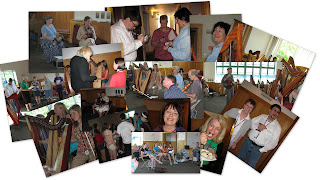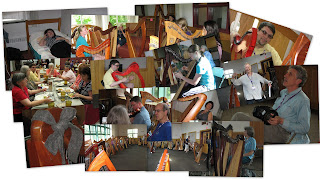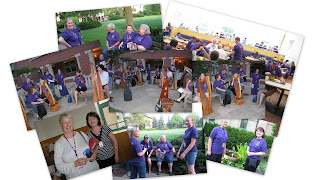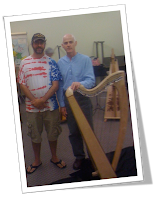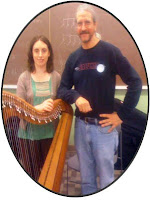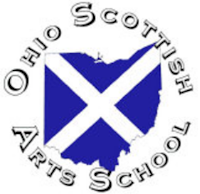I’m still on a high from the Washington Area Folk Harp Society Getaway that was held at the beginning of the month. It was well executed and brilliantly taught. The only negative comment I have is that the instructors were all so good and had so much great stuff to share that I had a really hard time trying to select which workshops to attend!
Workshops and other learning opportunities are like that – there’s so much to learn and so little time to learn it all. The number one thing we have to do to really get the most out of a workshop is to be open to learn whatever the tutor is prepared to teach.
That can be quite a challenge. Don’t let these things get in your way:
- Sometimes you’re not ready to learn what is on offer. Just because you’re not ready doesn’t mean that you won’t learn something useful.
- Sometimes you don’t have the ability to keep up – don’t get focused on being frustrated at what you can’t do yet, but rather focus on the concepts that are being shared.
- Sometimes you just can’t keep up – again, don’t get frustrated. And believe the instructor who says it’s ok if you don’t get it all right now – you have time later to come back to it.
- Sometimes you don’t understand what was being said. It is really hard to learn concepts if you don’t have the vocabulary yet. Of course, the best way to build your musical vocabulary is to learn what things mean be being taught.
-
Sometimes, it just isn’t a good time to be learning – if you’re tired, stressed, or focused on other things – just sit in the workshop and absorb. And enjoy the social aspect – nothing wrong with that!

What I find interesting though, is how much I have learned – even when I thought I wasted my time (and the instructors!).


